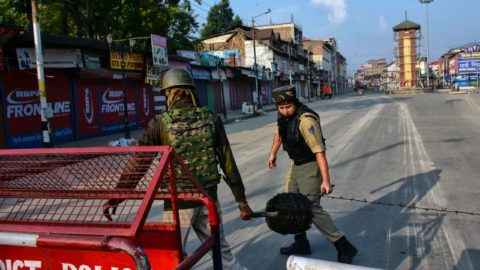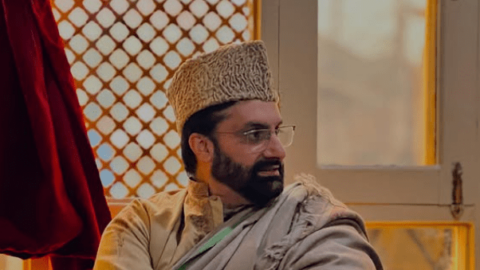On December 27th, Mirwaiz Muhammad Umar Farooq, was barred from leaving his house to lead…
Kashmiri female political prisoner denied urgent medical healthcare
On 24th September, family members of a Kashmiri female political prisoner informed us that 34-year-old Fehmeeda Sofi is bedridden and has been rendered completely immobile due to a severe back and spinal problem.
Fehmeeda Sofi has been facing severe hardships during her more than 8 years of intermittent detention. She has been subjected to repeated arrests under the draconian Public Safety Act and the Unlawful Activities Prevention Act. Currently detained at Tihar Jail in New Delhi, she is miles away from her home.
A few weeks back, her family came to know that Sofi’s back ailment has worsened to the degree that she has been rendered completely immobile. She can no longer walk and is bedridden. This is very worrying as Sofi is only 34-years-old, and was very healthy prior to her detention, without having any serious ailment. The fact that her imprisonment has made her immobile conveys the conditions of the prison and the denial of any substantial medical treatment. The doctor has demanded that she undergo back surgery immediately without any delay, but the prison authorities are not paying any heed.
Last time when she was taken outside prison to a hospital, the hospital staff had refused to treat her because of her visible religious identity, as she wears an Abaya (Muslim apparel for women to cover one’s body), and more so, because of her association with the Kashmiri self-determination movement.
She requires urgent back and spinal surgery, and then prolonged care in the hospital for her proper recovery. The prison authorities are denying her these rights, with her family expressing the fear that Sofi may lose her mobility permanently if her back is not afforded urgent and due care. The prison authorities have informed the family that even if they allow her to undergo back surgery at a hospital, she would be returned to her prison cell soon after the surgery is over. The family protests against this, as prolonged hospital care is incumbent after an intricate spinal surgery. They fear that the denial of proper recovery may further complicate her medical condition.





